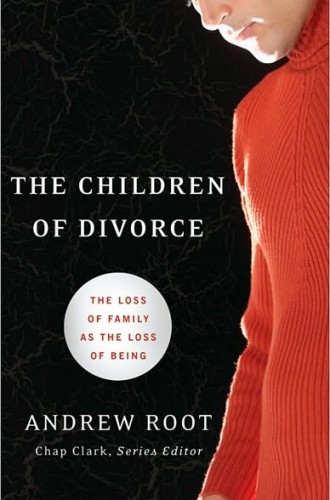A review of The Children of Divorce
On the way to meet a friend whose marriage, I'd heard, was on the rocks, I sifted through the clichés one can offer someone on the verge of divorce. But when I arrived, her husband was with her to welcome me. As we traveled around her campus together I noticed them holding hands (so rare on U.S. college campuses that you wonder if it violates some regulation). And during my lecture the nonacademic husband attended—and even (gasp!) asked a question. Somehow being with them amidst a marriage being patched back together, a love being renewed, made me a bit more human than I was when I arrived. I hugged my wife tightly when I returned home.
Andrew Root is one of those writers who produces so much you wonder how he also maintains a bustling young family and teaches full-time (at Luther Seminary). This is, by my and Amazon's count, his third book in two years. Most of his recent work is in his academic field of youth ministry, which he entered when studying with Kenda Creasy Dean at Princeton Seminary. The book is filled with piss and vinegar; Root doesn't assume the detached posture of many academic writers.
Trying to make theological sense of divorce, Root boldly argues that the severance of a marriage presents an ontological challenge to children—it threatens them at the level of their very being. I think this argument incorrect, confused and confusing, but I am thankful that Root has taken on the topic. His and my generation is the first in which we can assume that our peers' parents are split rather than together. That must mean something. I'm not sure what it means but I'm grateful for his effort to tackle it.





